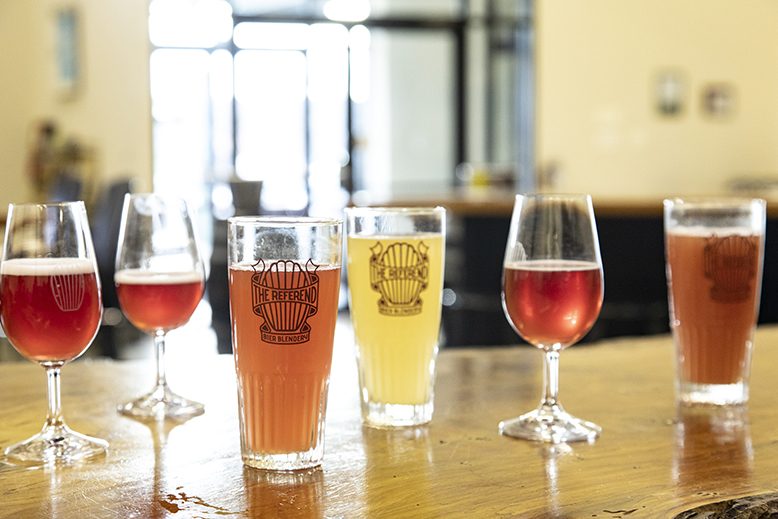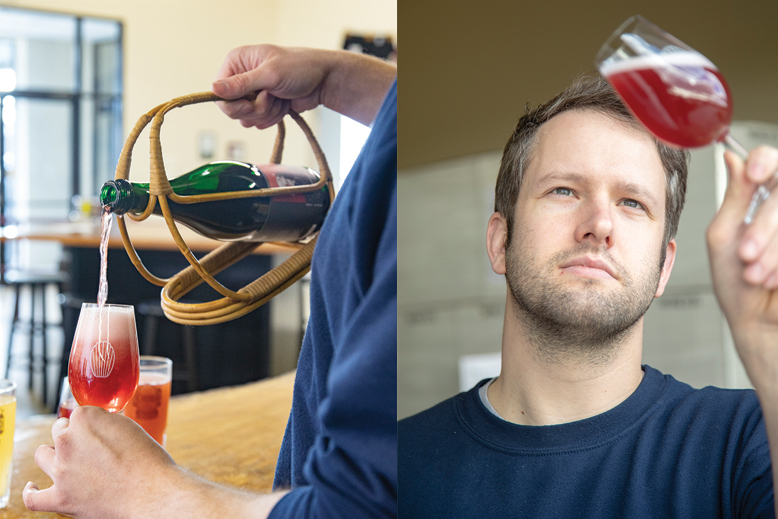
Some may put James Priest’s beers in the sour category, but sourness isn’t the point.
“We’re pretty obsessed with the process,” says Priest, owner of the Referend Bier Blendery (one of our best 16 breweries), which specializes in lambic-inspired brews. The lambic process, involving spontaneous fermentation and barrel aging, always yields some degree of sourness.
Priest’s fascination with sour beers began nearly eight years ago. “I couldn’t get enough of them,” says Priest, a Chicago native with years of experience at breweries, wineries like Amalthea Cellars in Atco, and bars. His obsession took him to Belgium, where he learned about the age-old tradition of making spontaneously fermented lambic beers.
In 2016, Priest opened the Referend in a warehouse space in Pennington, becoming the second all-spontaneous brewery in the country—and the only in New Jersey. The Referend lacks the equipment to make it a true brewhouse, so Priest takes his recipes to other breweries to create wort, or unfermented beer. Then, he pumps the wort into a coolship, a shallow stainless steel vessel that resembles an oversized baking pan. The wort cools overnight as it spontaneously absorbs naturally occurring, wild microorganisms. The next day, it’s transferred into neutral barrels back at the blendery. Months or sometimes years later fruit or dry hops are added. That’s where the spontaneous fermentation starts to take place.

From left: Owner James Priest pours a beer from a traditional lambic basket, designed to reduce sediment in the pour; and Priest examines one of his beers. Photo by Scott Jones
Much of what you taste in a beer is the result of the yeast used during the brewing process. Most commercial beers are brewed with cultivated yeast strains, but lambics let nature take its course, “sourcing yeast from the ambient air,” explains Priest.
Because Priest uses different locations to brew, flavors vary. The Referend’s beers are more in line with wine, changing vintage to vintage, than most commercial brews, which use the same recipe each time.
The process takes 12 to 25 times as long as typical craft beers, but the result is a high-acid, complex beer that is typically cloudy, effervescent, and yes, sour.
When possible, Priest uses local ingredients. He sources grain from Rabbit Hill Malthouse in Shiloh, wine grapes from local wineries, and other fruits like blackberries, raspberries and peaches from Jersey.
Priest encourages tasting-room guests to ask about the beers, which defy the expectations of many drinkers. “The easiest way for someone to have a bad experience with this beer is to know nothing about it,” he says.
